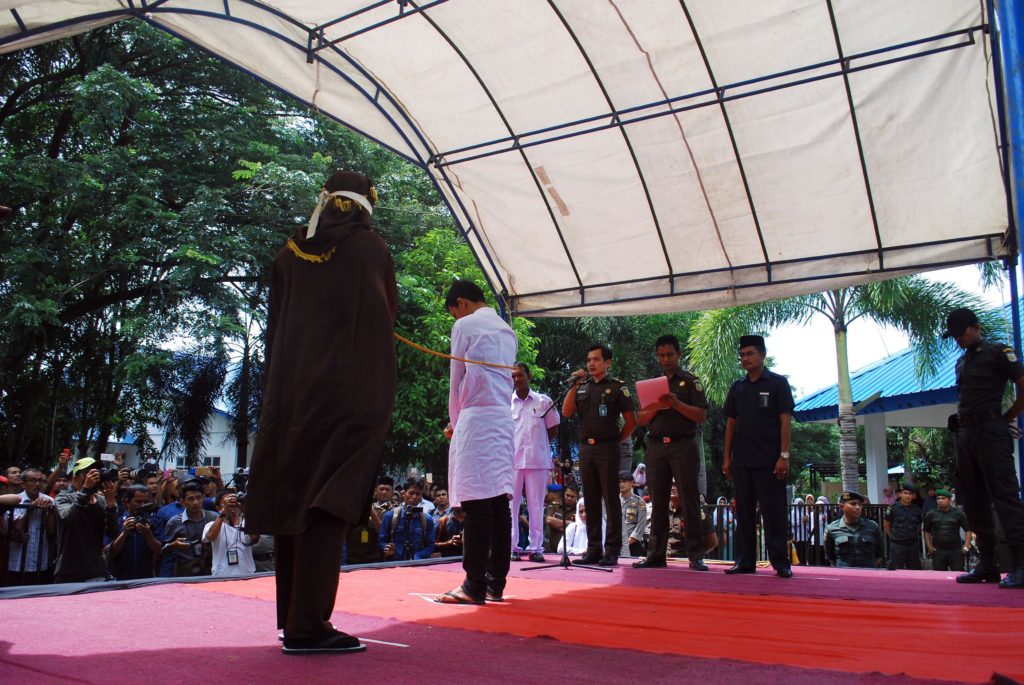
Responding to the public flogging of six people in Aceh Province on Tuesday, Amnesty International Indonesia Executive Director Usman Hamid said:
“The use of flogging as a punishment constitutes cruel, inhuman and degrading treatment and may amount to torture. It is disgraceful and ruthless – no one deserves to be brutalized and humiliated in this way.
“The fact that the flogging was conducted in public despite a public ban on mass gatherings amid the COVID-19 pandemic poses a further threat to the population at large.
“We strongly urge the authorities to immediately halt this cruel practice and repeal the bylaw which carries these vicious punishments to bring them in line with international standards and Indonesia’s human rights obligations under its own Constitution.“
Background
On Tuesday, 21 April 2020, authorities in Aceh Province flogged four men for drinking alcohol, as well as an unmarried couple who were caught together in a hotel room. The four men were beaten 40 lashings, while the couple received 24.
The punishments were conducted amid a ban over mass gathering due to COVID-19. The authorities claimed they followed “social distancing” requirements by limiting the number of participants involved. According to media reports, a dozen people gathered to see the punishment and most of those whipped were not wearing face masks.
Based on monitoring conducted by Amnesty International Indonesia, there have been 109 individuals flogged in 2020 so far. (There were 309 in 2019, and 235 in 2018.) The most common offences were consensual sexual relations outside marriage, being alone with someone of the opposite sex and gambling.
Aceh is the only Muslim-majority province that implements Islamic bylaw. The Aceh Islamic Criminal Code was passed by the Aceh parliament (DPRA) in 2014 and came into effect throughout Aceh Province on 23 October 2015. Islamic bylaw has been in force in Aceh since the enactment of the province’s Special Autonomy Law in 2001 and are enforced by Islamic courts. These laws, in some cases, provide for up to 200 lashes as punishment.
Punishable offences include same-sex sexual relations, premarital sex and other sexual relations outside marriage (“adultery” or zina), consumption of alcohol (khamar), gambling (maisir), “being alone with someone of the opposite sex who is not a marriage partner or relative” (khalwat), committing sexual intimacy outside marriage (ikhtilath), sexual abuse, rape, accusing a person of adultery without providing four witnesses, and intimacy between unmarried couples.
Under international human rights law, all forms of corporal punishment are prohibited. In 2013, the UN Human Rights Committee, which monitors states’ compliance with the ICCPR, asked Indonesia to take practical steps to put an end to corporal punishment and to repeal the provisions of the Acehnese law permitting its use in the penal system
Further, consensual sexual relationships must not be treated as a criminal offence, nor are they a crime against ‘morality’. The UN Human Rights Committee and other expert human rights bodies have raised concerns about laws criminalizing ‘adultery’ or other consensual sexual relations outside marriage because they violate the right to privacy.
